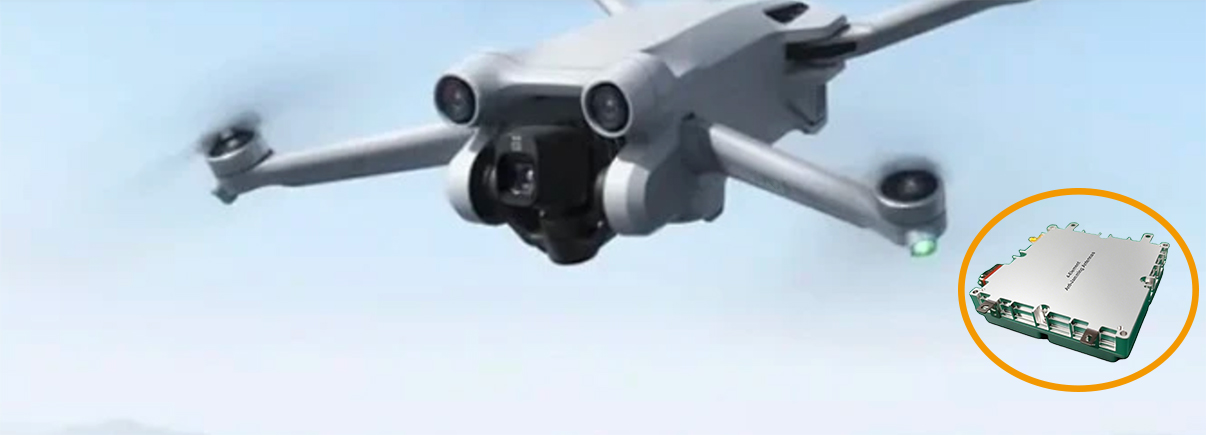
Introduction: Are Your Navigation Systems Actually Safe from Signal Sabotage?
In a world relying on satellite positioning for everything from autonomous vehicles to disaster recovery, the question isn't whether interference will strike—but when. Most people believe GNSS signals are rock-solid just because satellites circle overhead, but they miss a harsh truth: everyday antennas are easily knocked out by intentional and unintentional electronic jamming. Whether it’s military maneuvers, commercial ports, smart highways, or drones, the invisible threat of signal loss lurks everywhere.
That's where CHREDSUN's revolutionary 4-element anti-jamming GNSS antenna steps in—with technology engineered to defeat 13 simultaneous sources of disruptive noise, frequency sweeps, and pulse jamming. Today, we’re diving deep into how this small powerhouse turns impossible conditions into reliable navigation—while other antennas drop out.
Chapter 1: The New Science of Staying Connected—How Anti-Jamming Works
Anatomy of Interference
Jamming comes in many forms: wideband white noise, pulsed signals, narrow sweep attacks, or even combined strategies. Typical antennas are designed for sensitive reception—not for resilience or adaptability. This allows malicious or accidental interference to drown out satellite signals, leading to chronic outages or critical failures.
How CHREDSUN's Four-Element Array Changes the Game
The CHREDSUN 4-element antenna leverages an advanced phased array design. Each element acts as both a receiver and a tactical shield—selectively amplifying true satellite signals and creating “null zones” to cancel interference arriving from up to 13 different directions:
l Active Nulling: Proprietary algorithms analyze incoming power, direction, and signal characteristics in microseconds, dynamically reconfiguring the array’s response.
l Multi-Frequency Support: Simultaneously locks onto GPS L1, BeiDou B1, Galileo E1, and enhanced GLONASS G1 signals. No more switching antennas or sacrificing compatibility.
l Robust Gain & Sensitivity: Maintains stable RF output power (-60 to -70 dBm) and a strong signal-to-noise ratio, even in ultra-tough environments.
But the hardware only tells half the story. Embedded firmware coordinates array response, enabling quick, intelligent adaptation to changing attack patterns—a feature missing in conventional passive designs.
Chapter 2: Behind the Specs—Technical Details that Set CHREDSUN Apart
Key Features at a Glance:
l 13-Source Simultaneous Jamming Resistance: Quiets chaotic interference from nearly every angle and signal type.
l Horizontal Positioning Accuracy: 7 meters, vertical accuracy 9 meters—ideal for precision mapping, logistics, and field robotics.
l Velocity Measurement: Up to 0.2 m/s accuracy, meaning real-time kinetic feedback for moving platforms.
l Flexible Output Modes: Switch between “hard bypass” (direct RF out) and full anti-jamming mode via serial interface, so you’re never trapped by system limitations.
l Built-in Receiver: Offers PVT (Position, Velocity, Time) solution output for advanced system integrations.
Rugged by Design
Dimensions: 65×65×23mm or 100×100×25mm to fit compact or medium-size installations.
Weight: 150–300g for easy mounting anywhere.
Mounting: Four M3/M2.5 precision interfaces for multi-surface deployment.
Operating Conditions: -40°C to +70°C, IP65 waterproof, shock/vibration resistance.
No matter the terrain—urban jungle, salty sea, or frozen tundra—the CHREDSUN anti-jamming GNSS antenna keeps you connected.
Chapter 3: Real-World Deployments—Case Studies That Prove the Power
UAV Swarm Operations
During a test of 30 interconnected drones in a hostile electromagnetic range, standard antennas showed >60% dropout. With CHREDSUN, up to 94% of the drones maintained GNSS lock under coordinated jamming, allowing safe return-to-base and swarm formation.
Port-Based Automation & Logistics
Maritime ports suffer massive interference from cranes, ships, and legacy radio stations. CHREDSUN’s anti-jamming solution, with real-time switching and adaptive nulling, enabled automated guided vehicles (AGVs) to operate continuously—reducing errors, increasing throughput, and preventing property loss.
Critical Infrastructure & Public Safety Coordination
Power grids and emergency operation centers can’t afford GNSS downtime. CHREDSUN provided always-on navigation for mobile emergency vehicles during severe storms, where both wideband and pulse jammers were encountered.
Chapter 4: Industry Trends—Why Anti-Jamming Is a 2025 Essential
As IoT devices, drones, and autonomous vehicles proliferate, interference risks are multiplying. From intentional military jamming to unintentional EMI (electromagnetic interference) in urban spaces, robust GNSS is no longer “nice to have”—it’s a mandatory foundation for innovation.
The market is demanding solutions that are:
l Miniaturized for embedded use
l Compatible across multinational satellite constellations
l Ready for complex, multi-source interference
CHREDSUN's integrated approach—small size, big capability, and universal compatibility—is ahead of the curve.
Chapter 5: A Competitive Edge—Comparing CHREDSUN to Leading Alternatives
Feature | CHREDSUN 4-Element | Typical Passive Antenna | Foreign CRPA Arrays |
Jamming Resistance | 13 directions | 1–2 directions | 6–8 directions |
Frequency Coverage | GPS, BeiDou, Galileo, GLONASS | Usually 1–2 bands | Most global bands |
Size & Integration | Compact (65–100mm) | Bulky/modular | Often larger/heavier |
Output Modes | Dual (bypass & AJ) | Single (passive) | Dual or single |
Mounting Options | Flexible, 4 interfaces | Often limited | Standard mounts |
Price Tier | Scalable, competitive | Varies | Expensive/slow supply |
CHREDSUN delivers top-tier performance, broader coverage, and easier integration—at a market-friendly value.
Chapter 6: Customization, and Global Support
l Custom arrays (2, 4, 7, 8, and 16 elements) and adaptive firmware configurations for specialized missions.
l Lead time tailored from 7–45 business days according to project scale.
l Full engineering support: direct consultations, documentation, and logistics worldwide.
Conclusion: Protect Your Future—Why CHREDSUN Must Be Your Signal Security Partner
The risks of GNSS signal loss are too large to ignore. Whether for national defense, world-leading ports, smart highways, or critical public services, CHREDSUN’s 4-element anti-jamming antenna literally changes the game—making sure you keep moving, tracking, and working no matter what.
Ready to prevent signal sabotage before it happens? Visit CHREDSUN at www.chredsun.com, talk to our engineers, subscribe to exclusive updates, or follow us on social media. Secure your future with CHREDSUN’s world-class anti-jamming solutions today!
English
العربية
Français
Русский
Español
Português
Deutsch
italiano
日本語
한국어
Nederlands
Tiếng Việt
ไทย
Polski
Türkçe
አማርኛ
ພາສາລາວ
ភាសាខ្មែរ
Bahasa Melayu
ဗမာစာ
தமிழ்
Filipino
Bahasa Indonesia
magyar
Română
Čeština
Монгол
қазақ
Српски
हिन्दी
فارسی
Kiswahili
Slovenčina
Slovenščina
Norsk
Svenska
українська
Ελληνικά
Suomi
Հայերեն
עברית
اردو
Afrikaans
Gaeilge
नेपाली
Aymara
Беларуская мова
guarani
Krio we dɛn kɔl Krio
Runasimi
Wikang Tagalog












